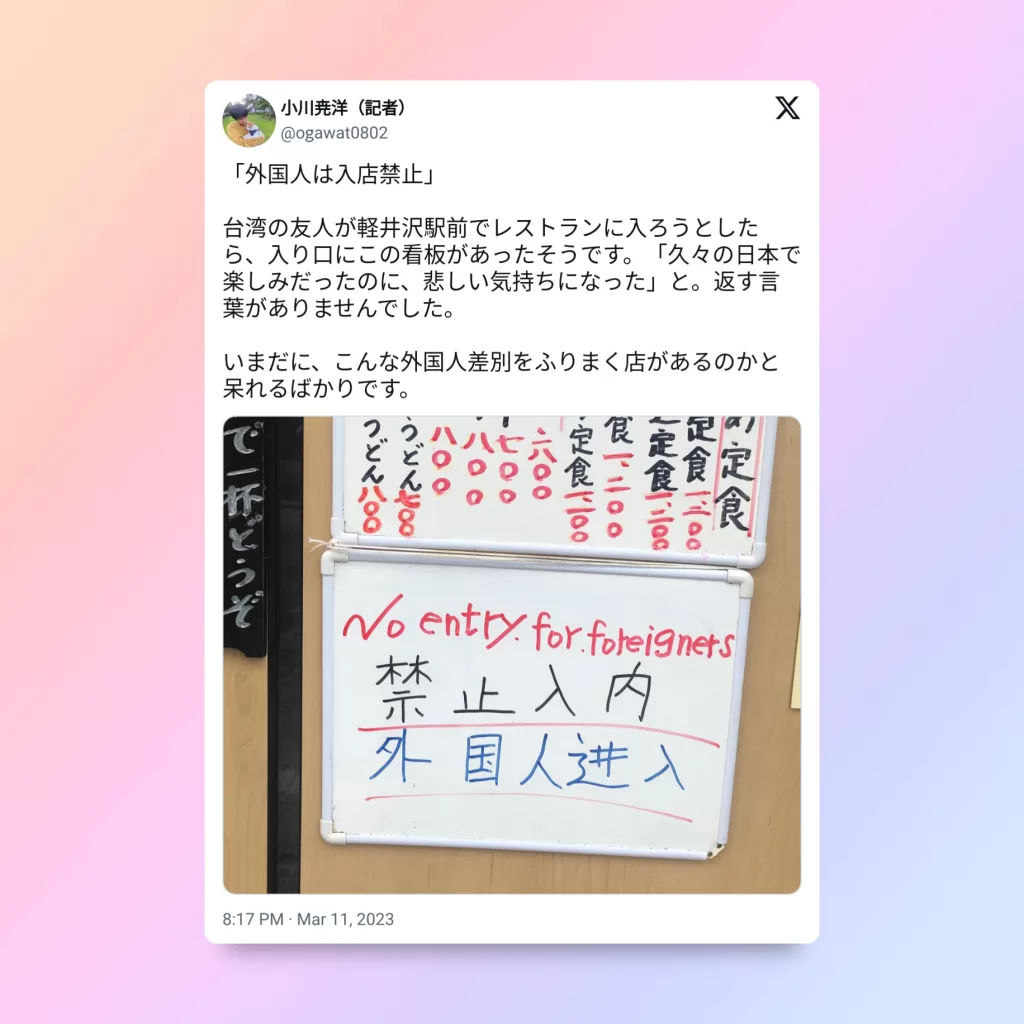Controversy of “Japanese Customers Only” Policies in Bars and Restaurants
The issue of “Japanese Customers Only” signs in bars and restaurants in Japan has been a subject of controversy and debate. While some argue that it’s a form of discrimination, others see it as a cultural or business necessity. This article aims to explore this sensitive topic from multiple perspectives, including the legal aspects and public opinion.
Legal Aspects
Is It Legal?
According to a Reddit post, there is a question about the legality of such signs.

The user asks if this form of discrimination is legal in Japan, noting that in most Western countries, it would be illegal to deny service based on race, nationality, or religion.
Public Opinion
The same Reddit post also questions what Japanese people think about this practice, especially considering that Japanese tourists often visit other countries. Would they be okay with “European Only” signs in Europe, for example?
Real-Life Incidents
Reddit User Experience
A Reddit user shared a post about a “No Entry for Foreigners” sign found at a restaurant in Karuizawa.

Cultural and Business Perspectives
Language Barriers
Some establishments justify the “Japanese Only” policy by citing language barriers. They argue that it’s difficult to provide service to customers who don’t speak Japanese.
Business Reasons
Some places may not want to deal with foreigners for various business reasons, such as customer preferences or the owner’s personal choice.
Japanese Customers Only
The “Japanese Customers Only” policy in bars and restaurants is a complex issue with legal, cultural, and business implications. While some view it as discriminatory, others argue that it’s a practical necessity. Public opinion on the matter is mixed, and the debate continues to be a hot topic both online and offline.